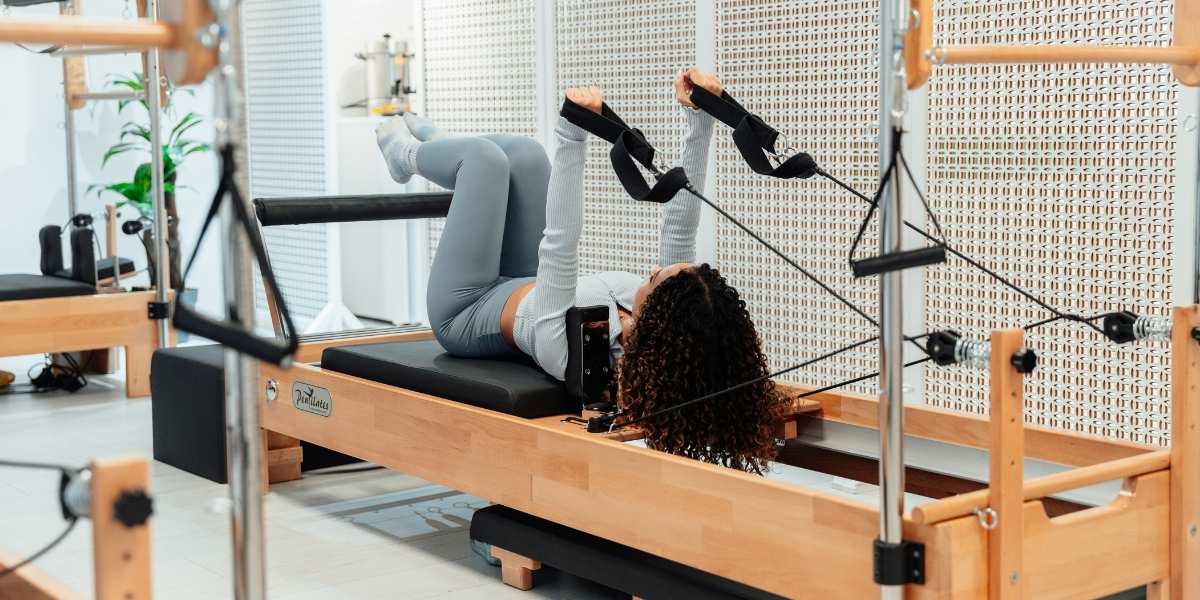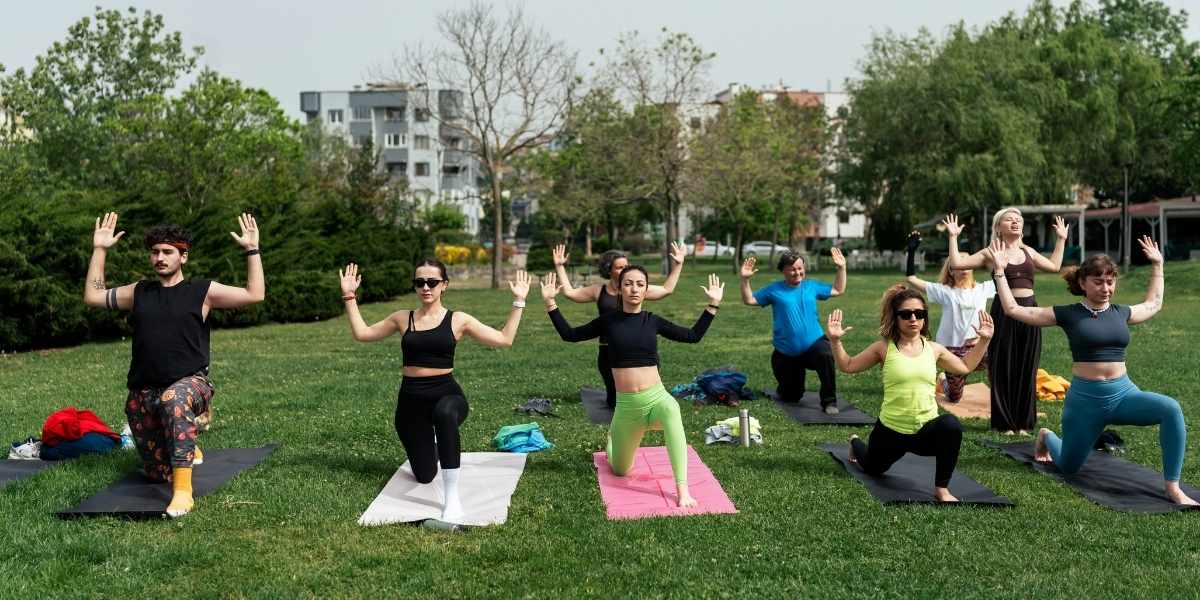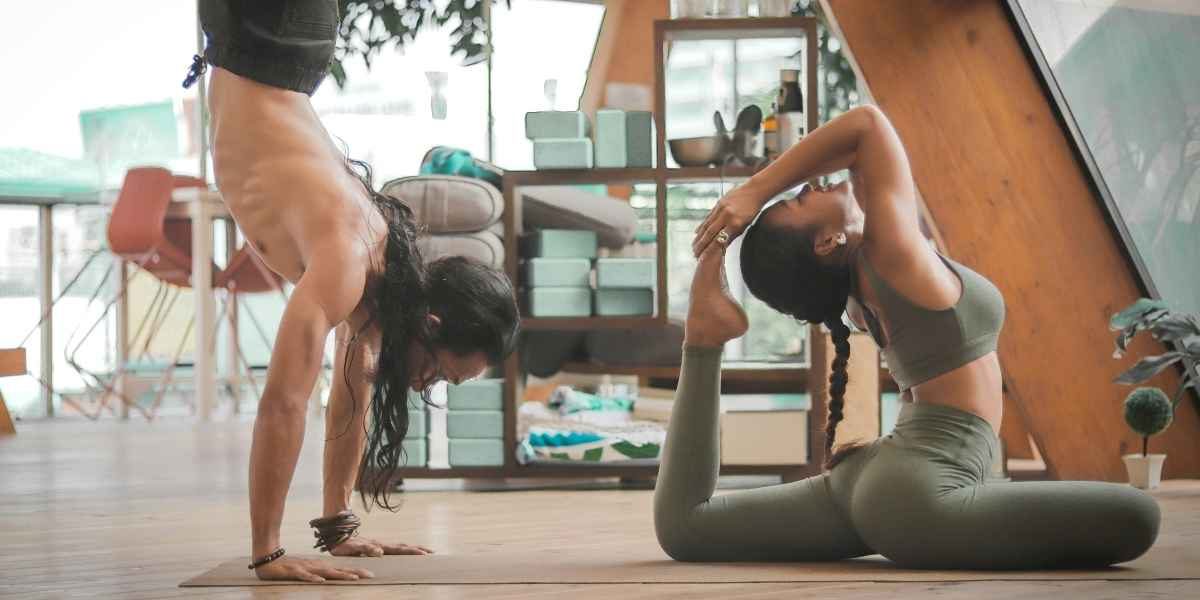In the vast and evolving world of fitness, the quest for a truly holistic approach often leads individuals to explore practices that transcend mere physical exertion. Among the most compelling innovations is Yogilates, a dynamic fusion that gracefully marries the ancient wisdom of yoga with the meticulous core-strengthening principles of Pilates. This hybrid discipline has emerged as a beacon for those seeking a comprehensive method to not only sculpt the physique but also cultivate mental serenity. For anyone looking to achieve a harmonious balance between strength, flexibility, mindfulness, and overall well-being, Yogilates presents an accessible and profoundly effective pathway to integrated fitness.
Read Also: Why Are Pilates Exercises So Effective for Full-Body Fitness?
The concept driving Yogilates is rooted in the recognition that physical and mental health are intrinsically linked. Yoga, with its origins stretching back thousands of years in India, is celebrated for its emphasis on fluid movements, profound breath control, meditative states, and the philosophical pursuit of inner peace and unity. It guides practitioners through a series of flowing postures, promoting flexibility, balance, and a deeper connection to one’s spiritual self. In contrast, Pilates, developed by Joseph Pilates in the early 20th century, is renowned for its focus on precise, controlled movements, strengthening the body’s core, and improving posture and alignment. It is a system built on strengthening the deep stabilizing muscles of the trunk, which are essential for everyday function and injury prevention. By thoughtfully combining these two powerful disciplines, Yogilates creates a synergistic workout that leverages the strengths of each, offering a more complete and balanced fitness experience than either practice could provide in isolation.
What are the Foundational Principles Guiding Yogilates?
The efficacy of Yogilates lies in its intelligent integration of the core philosophies and techniques from both yoga and Pilates. From Pilates, it adopts a meticulous attention to detail, emphasizing controlled movements that originate from the “powerhouse” – the deep abdominal and back muscles. This focus on core engagement ensures that every movement is supported, stable, and efficient, which is crucial for preventing injury and maximizing strength gains. The precision taught in Pilates translates into Yogilates sessions through deliberate, unhurried execution of exercises, encouraging practitioners to be fully present and aware of their body’s mechanics. Breathing, a cornerstone of Pilates, is also adapted, often involving lateral or diaphragmatic breathing to support core activation and improve respiratory function.

Photo Credit: Unsplash.com
From the rich tradition of yoga, Yogilates embraces the fluidity of transitions, the profound connection between breath and movement, and the overarching principle of mindfulness. Sessions often begin and conclude with periods of centering or meditation, allowing practitioners to ground themselves and cultivate inner calm. The flowing sequences characteristic of many yoga styles are woven into Yogilates, creating a dynamic and graceful workout that enhances flexibility and range of motion. Balance-oriented poses, stress-reduction techniques through breathwork, and the holistic approach to well-being are also integral components. This unique blend means that a Yogilates class offers not just a physical challenge, but also a mental and emotional reset, fostering a deep and meaningful connection between the individual and their physical self.
How Does Yogilates Fortify Physical Strength and Enhance Flexibility?
A standout advantage of regular Yogilates practice is its remarkable capacity to simultaneously cultivate robust physical strength and profound flexibility. The Pilates influence is evident in the targeted strengthening of the deep core musculature, including the transversus abdominis, obliques, and pelvic floor. These muscles are vital for spinal stability, improving posture, and providing a powerful foundation for all bodily movements, from lifting everyday objects to engaging in more intense athletic pursuits. Yogilates exercises often incorporate Pilates-inspired movements such as modified planks, controlled abdominal curls, and leg extension sequences, all designed to build foundational strength from the inside out.
The yoga component of Yogilates significantly contributes to enhanced flexibility and joint mobility. Through a wide array of stretches and classic yoga postures, muscles are lengthened and become more pliable. Holding poses like extended side angle or specific hip openers, for example, systematically increases the range of motion in joints and surrounding tissues. The continuous, flowing nature of many Yogilates routines ensures that muscles are warmed and stretched progressively, leading to greater elasticity over time. This dual emphasis on strengthening and lengthening creates a balanced physique, helping to prevent muscle imbalances that can lead to stiffness, discomfort, or injuries. The result is a body that is not only stronger but also more agile and resilient, capable of moving with greater ease and efficiency.
What Are the Significant Mental and Emotional Benefits?
Beyond the tangible physical transformations, Yogilates delivers substantial and often profound benefits for mental and emotional well-being. The deliberate focus on breath, a fundamental aspect inherited from yoga, acts as a powerful anchor for the mind. Deep, conscious breathing techniques, or pranayama, actively engage the parasympathetic nervous system, which is responsible for the body’s “rest and digest” state. This activation helps to calm the mind, reduce feelings of anxiety and stress, and lower physiological responses such as heart rate and blood pressure. The controlled, rhythmic breathing promotes a meditative state, even during dynamic movements, helping individuals to quiet mental chatter and enhance their ability to concentrate.
The inherent mindfulness cultivated in Yogilates also plays a crucial role in improving emotional regulation. By encouraging practitioners to be fully present in each movement and to observe their thoughts and sensations without judgment, Yogilates fosters a heightened sense of self-awareness. This practice of observation can translate into daily life, allowing individuals to respond to stressful situations with greater calm and less reactivity. The discipline of focusing on precise movements and coordinating them with breath strengthens mental focus and concentration, skills that are highly transferable to professional and personal spheres. Many practitioners report a significant reduction in daily stress, an improved mood, and a greater sense of emotional resilience, illustrating the practice’s ability to act as a powerful antidote to the pressures of modern life.
How Does Yogilates Support Overall Health and Injury Prevention?

Photo Credit: Unsplash.com
The integrated nature of Yogilates positions it as an exceptional practice for fostering overall health and playing a proactive role in injury prevention. The consistent reinforcement of core strength and proper alignment, central to both Pilates and yoga, directly translates to improved posture. A strong, aligned spine supports the entire skeletal structure, alleviating common complaints such as lower back pain and neck stiffness that often arise from prolonged sitting or poor postural habits. Enhanced posture, in turn, can contribute to increased confidence and a more open, energetic physical presence.
The emphasis on controlled, mindful movements means that Yogilates is inherently a low-impact exercise, making it suitable for a broad spectrum of individuals, including those new to fitness, older adults, or those recovering from certain injuries. By strengthening the muscles that support joints and increasing flexibility, Yogilates helps to stabilize the body, reducing the risk of strains, sprains, and other musculoskeletal issues. The development of balance and proprioception – the body’s awareness of its position in space – through specific poses and sequences further contributes to fall prevention and improved coordination in daily activities. This holistic approach means that Yogilates not only builds a more capable body but also educates the individual on how to move more efficiently and safely, safeguarding long-term physical well-being.
Read Also: From Yoga to Tai Chi: Ancient Fitness Practices for Modern Wellness
The journey into Yogilates is an investment in a multifaceted approach to wellness that extends far beyond the physical realm. It offers a unique opportunity to cultivate a profound connection between mind and body, leading to not just improved strength and flexibility, but also enhanced mental clarity, emotional balance, and a greater sense of inner harmony. By seamlessly weaving together the precision and core power of Pilates with the fluidity, mindfulness, and spiritual depth of yoga, Yogilates stands as a testament to the power of integrated practices. Embracing this disciplined yet gentle form of exercise can unlock a more resilient, balanced, and vibrant self, ready to navigate the demands of life with renewed energy and composure.







